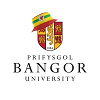Postdoctoral Research Officer - Bangor, United Kingdom - Bangor University
Description
Applications are invited for the above temporary full time post working in the School of Natural Sciences and the School of Ocean Sciences.
Duties will include gathering and analysis of data, delivering research outcomes and administration of the research project.Applications will also be considered to carry out this role on a part-time or job share basis. However, the sum of the part time/job share contracts must equal 1 FTE.
Committed To Equal Opportunities
Overview
Dr Nathalie Fenner is a Senior Lecture researching in the fields of aquatic biogeochemistry, carbon sequestration and biodiversity.
Current research is focussed on aquaculture emissions, optimising drinking water treatment processes, using novel constructed wetland and impoundment systems to reduce eutrophication, biofuel production and biodiversity and carbon fluxes in mangrove ecosystems.
She has published in Nature, Nature Geoscience and other leading journals and is currently the Postgraduate Research Director for the School of Natural Sciences (SNS).
Dr Jonathon King is a Reader researching the needs of both public and private sectors in sustainable aquaculture and shellfisheries, particularly attempting to fill knowledge gaps that are hindering the development of the shellfish farming industry.
Work has included studies of the distribution and potential impact of non-native aquaculture species, research supporting restocking of native species, development of hatchery techniques and trials of pilot-scale offshore systems.
Dr King is a member of the marine conservation and resource management group, within the School of Ocean Sciences (SOS), with a long history of world leading research focussing on how anthropogenic disturbances such as exploitation, invasive species and climate change affect marine ecosystems, and how to best manage and protect these ecosystems.
Such research employs a wide range of techniques, from modelling and analyses of large datasets, laboratory studies, ship-based work on the research vessel Prince Madog to expeditions on remote atolls.
The group is well-funded with >£15M in research income over the past 10 years from a variety of sources, including the EU, Research Councils, DEFRA and charities.
Current research focuses on how fisheries affect ecosystems and how these impacts can be mitigated, on how climate change affects marine ecosystems, the impacts of invasive species, and on gaining a greater understanding of how biodiversity underpins ecosystem services.
Apart from generating excellent scientific papers, the applied nature of the research is reflected by the fact that our impact case studies were judged to have 4* elements in the 2014 REF.
The Project
The successful applicant will be responsible for obtaining and analysing the main input data to model the fate of carbon and nitrogen in the 'Pond IMTA' system developed as part of the INTEGRATE Integrated Multi Trophic Aquaculture project summarized below, using previously collected data and new data generated during the post.
A Pond IMTA C & N model will be developed using stable isotopes, with partners (e.g., GreenCoLAB in Portugal) to provide an evaluation of the emissions and bioremediation potential of IMTA primary producers and/or different IMTA systems to support decisions on management strategies and species selection.
The successful applicant will work closely with groups lead by Drs N.Fenner (Biogeochemistry/SNS) and Jon King (Aquaculture and IMTA/SOS) at Bangor University but have a unique opportunity to take up placements with the expert IMTA project partners across the Atlantic region.
INTERGRATE
This project is co-financed by the European Regional Development Fund through the Interreg Atlantic Area Programme.
Circular economy principles make activities more sustainable and competitive.
The INTEGRATE project will foster a quintuple helix cooperation to promote the industrial transition, finding sustainable ways to address an imbalance of resources towards Integrated Multi-Trophic Aquaculture (IMTA) in the Atlantic Area.
The project will develop effective tools to increase competitiveness while removing the barriers to sectoral green growth and improving the quality and public image of the aquatic products.
Even though its development is encouraged by major policies (EU Blue Growth Strategy, Atlantic Action Plan, RIS3), there are many limits (socio-economic, administrative and legal) and challenges that need to be solved in order to benefit from its potential to increase competitiveness, productivity and profitability while minimizing environmental impacts related to waste production.
The INTEGRATE project aims to strengthen transnational and collaborative networking among research, business-industry groups and civil society on eco-efficient aquaculture techniques through a territorially based cooperation approach.
More jobs from Bangor University
-
Senior Clinical Tutor
Bangor, United Kingdom - 1 week ago
-
Research Project Support Officer
Wrexham, United Kingdom - 6 days ago
-
Postdoctoral Research Officer in Environmental
Bangor, United Kingdom - 1 day ago
-
Research Project Support Officer
Bangor, United Kingdom - 2 weeks ago
-
Part-time Senior Clerical Officer
Bangor, United Kingdom - 2 weeks ago
-
Research Officer in Maritime Archaeology
Bangor, United Kingdom - 2 weeks ago

